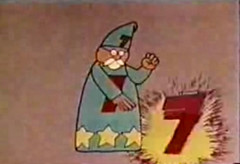Be
Walking to town the other day, I saw three girls up ahead sitting on the sidewalk—not on the curb or a lawn, but on the main you-walk-on-it part—and I was reminded of an age when the sidewalk, if you dared to experience it outside the defined routes of socially acceptable action, could be a site from which to view what is. In seventh grade, the concrete water district platform in a nearby suburban neighborhood—think of John Carpenter’s Halloween—became a meeting place for a club of girls who renamed themselves Freedom, Spirit, Wisdom, Beauty, and Justice; they drew goddesses on the platform in chalk and rode off on their bikes to find the steepest hill for the loudest, livest Yoko Ono screams that ever echoed through the pines of Hayford Heights. Any space was available for any purpose: you could dance and sing on the green in the middle of the rotary, sit on the concrete ledge by the gas pumps to take photographs, climb up through the overpass to a point between the north- and southbound lanes of I-95 to experience the speed of highway traffic on a human scale, lay in the street at four A.M. and wish that the world’s war-makers could feel what it was like to dissolve so perfectly peacefully into the dotscape of everything. As I got closer to the group, striped track suits and fuzzy headbands came into focus, and my vision of pure world-experiencers evaporated—the girls were doing stretches to get limber for a jog: to be in the world is to muscle through it, to drown it in private music, to use it for traction in anxious reshapings of your body.
Later in my walk, a second event recalled the open experience-space of adolescence: spray-painted on a telephone pole was the word Be. That message, written on yellow sticky notes, had appeared one day in odd corners of my junior high school. Be, in the water fountain alcove, on the tiled wall of the stairwell, in the heated vestibule where we’d crowd at recess. It was the work of Jessica and Josselyn, popular girls who didn’t typically make public their dabbling in big ideas. But on this day they would approach you with wild eyes and ask, Do you get it? Say yes and you’d get a sticky to wear to spread the message.
Later in my walk, a second event recalled the open experience-space of adolescence: spray-painted on a telephone pole was the word Be. That message, written on yellow sticky notes, had appeared one day in odd corners of my junior high school. Be, in the water fountain alcove, on the tiled wall of the stairwell, in the heated vestibule where we’d crowd at recess. It was the work of Jessica and Josselyn, popular girls who didn’t typically make public their dabbling in big ideas. But on this day they would approach you with wild eyes and ask, Do you get it? Say yes and you’d get a sticky to wear to spread the message.

